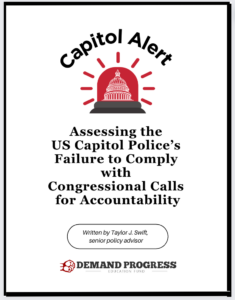By Taylor J. Swift, senior policy advisor
On Thursday, July 13, the full Senate Appropriations Committee reported out the Legislative Branch Appropriations bill and report 30-0. Unfortunately, the bill text, manager’s amendment, and committee report didn’t come out until Friday morning, the day after the markup.
The Senate proposed to appropriate $6.761 billion towards the Legislative branch, a 2% reduction from $6.899 FY23 enacted level. This number aligns with the Senate Appropriations Committee initial 302(b) suballocations, which were approved on June 22. By comparison, the inflation rate for the 12 months ending in June was 3.0%, so this represents a cut in real terms in funding for the Legislative branch. Additionally, the House Appropriations full committee favorably reported out its FY24 Legislative Branch bill in May, which appropriated $6.746 billion, a difference of $15 millon from the Senate version. You can read more about the House bill’s funding numbers here.
We reviewed the bill text released on Friday morning and compared each line item against historical norms. Our findings on that line by line review are below. In a future blogpost, we will review the policy requests included in the accompanying FY24 Senate Legislative Branch Appropriation bill report.
In summary, the Senate looked to bolster congressional security, operations, and staff resources with this bill. Given the ongoing back-and-forth with the House, the Senate made it clear they want Congress to retain much of its current capabilities to legislate, conduct oversight, and serve constituents.
We and our civil society colleagues recommended dozens of items to include as part of the bill text and committee report — see our FY 2024 Appropriations requests and our FY 2024 appropriations testimony. You can watch the full Senate Appropriations Committee markup here and don’t miss our resources on historical Legislative branch appropriations bills. We also have a comprehensive write-up of the House version here.
You can compare FY 2024 draft line item funding for FY 2021 versus FY 2022 versus FY 2023 by looking at our spreadsheet here. It also is embedded below.
Continue reading “First Impressions: Funding Breakdown in the FY 2024 Senate Legislative Branch Appropriations Bill” →
